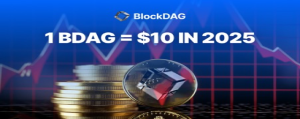Massive retail FX revival in America on the way as Donald Trump’s transition team begins abolishing the Dodd-Frank Act
As the Republican Party’s transition team begins to invoke its policies, one item on the agenda is the abolition of the Dodd-Frank Act which caused many retail FX firms to exit the US market. With top quality consumer protection and a highly organized retail financial markets sector, could the US become once again a global focus for the FX industry? We take a look

America the brave, America the free. An absolutely fantastic country and one of the world’s most refined and advanced business environments.
…Unless you are a retail FX company.
In 2010, in the aftermath of the financial crisis, the retail electronic financial markets tainted by the demises of MF Global and PFG Best, incumbant President at the time Barack Obama signed the Dodd-Frank Wall Street Reform Act into federal law.
Passed as a response to the Great Recession, it brought the most significant changes to financial regulation in the United States since the regulatory reform that followed the Great Depression.It made changes in the American financial regulatory environment that affect all federal financial regulatory agencies and almost every part of the nation’s financial services industry, and imposed massive restrictions on retail FX firms to the extent that the vast majority of brokerages not owned by US entites packed their bags and exited the market, leaving the whole of America’s electronic trading environment to Chicago’s listed derivatives firms, proprietary shops and what has now diminished to three domestic retail firms, those being FXCM, GAIN Capital and OANDA Corporation – the latter being Canadian but is an NFA regulated brokerage whose business is substantial in the United States.
Following the election of Donald Trump as America’s 45th President, the barriers of doing business as an FX brokerage are about to be abolished, as the Transition Team within the Grand Old Party has vowed to dismantle the Dodd-Frank Act and make a litany of changes to overturn the veto that was imposed by Barack Obama.
Let’s take a look at the obstacles:
– $20 million net capital set aside for regulatory purposes.
– No acceptance of clients who are not US residents or citizens.
– No overseas firms can solicit for business in the United States
– The imposition of the Volcker Rule which prohibits proprietary trading in any capacity outside OTC derivatives.
The Volcker Rule was first publicly endorsed by President Obama on January 21, 2010. The proposal specifically prohibits a bank or institution that owns a bank from engaging in proprietary trading, and from owning or investing in a hedge fund or private equity fund, and also limits the liabilities that the largest banks can hold. This is one of the Republican Party’s major priorities when looking at abolishing the Dodd-Frank Act.
Under discussion is the possibility of restrictions on the way market-making activities are compensated; the Dodd-Frank Act stipulates that traders would be paid on the basis of the spread of the transactions rather than any profit that the trader made for the client. This may be also abolished.
On January 21, 2010, under the same initiative, President Obama announced his intention to end the mentality of “Too big to fail.
Yesterday, the transition team’s blueprint on the president-elect’s website stated that the Trump team “will be working to dismantle the Dodd-Frank Act and replace it with new policies to encourage economic growth and job creation.”
The president-elect has enlisted the services of Paul Atkins, a former Republican member of the Securities and Exchange Commission and longtime Dodd-Frank critic, to recommend policies on financial regulation.
Any removal of draconian restrictions on FX trading in the US will likely be welcome, with the best aspect here being the chance for the US to shine as a bastion of high quality as the National Futures Association and Commodity Futures Trading Commission will not tolerate malpractice and have massive restitution and prosecution powers against firms that do wrong, however if the Dodd-Frank Act is completely overturned at this stage, it would mean a genuine free market for those wishing to make the most of an astute audience which benefits from the highest level of consumer protection in the world, without the overbearing government bureaucracy that caused well-meaning and high quality firms to exit the country in the first place.
During the next year, it will be of great interest to note the extent to which the Dodd-Frank Wall Street Reform Act will be rescinded and to how many firms can benefit from once again re-establishing presence in one of the world’s most well organized and high quality regions.









